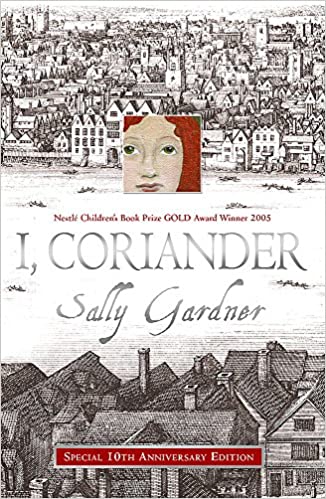
This article is in the Category
‘The Dyslexic Novelist’ Sally Gardner
Sally Gardner sees her dyslexia as a gift, but that’s not how the world in general views the condition, which is why she set up charity NUword to challenge preconceptions.
The journey to starting the NUword charity has been a long one. It began when I had just published I, Coriander in 2005 and I was told that the press would like an angle to go on. ‘Single mum, three children, written on a sofa’, was taken. Would I contemplate talking about my dyslexia? My editor thought it a good idea – after all, she had to battle through my many drafts and dire spelling. I was less keen. I did not have a good relationship with the ‘D word’, seeing it more as a jack-in-the-box than a friend that popped up at all the wrong occasions. Nevertheless, publicity didn’t have any such qualms – it made a good story and avoided the ‘single mum’ pitch.
Henceforth I became known as ‘The Dyslexic Novelist’. It struck reviewers as remarkable that someone with severe dyslexia could write at all. For the word carried the stigma of ‘disability’. It was only then that my attitude towards the unspellable D word changed, because I began to realise that there was a general misinterpretation of dyslexia, not just a personal one. I know I see my dyslexia as a gift and I wouldn’t be the writer I am without it. I have been given a great imagination, a love of words. I have a brain that doesn’t work the same way as the majority and it shouldn’t matter but it does. We accept diversity in culture, race, religion, sexuality. Why then do we refuse to accept diversity in the brain? Different minds think in different ways.
From 2005, after the publication of I, Coriander and as news of my dyslexia spread, I started to go into schools to talk to children, young adults and teachers about being dyslexic. To begin with I did so shyly, thinking that things must have changed for the better only to find that in fact little has changed except that the D word is now known, and that limited support is available for this ‘disability’ that has something to do with being bad at reading, spelling, writing. I have become more frustrated over the years, knowing perfectly well that there are many children who have gone undiagnosed mainly due to the lack of financial resources and lack of adequate training for teachers. As a result, many dyslexic children are isolated, misunderstood and shut out from the education they deserve.
it’s not the brain of the person you should change, but the method in which you educate them
I decided that it was one thing to stand up and talk about these issues, another to really do something about it. Five years ago I came up with an idea to start a charity that would radically change the way dyslexic people are perceived, that would move the dyslexia focus from ‘disability’ to ‘ability’ by championing the many dyslexic strengths and challenging negative self-beliefs. Our education system currently favours a one-size-fits-all approach to learning but every individual has different learning styles; and no – phonics is not the blanket answer to learning to decode the written word.
Along with Rosa Weber, who has worked with equal passion on this project since it was a twinkle of a thought and with the help of our benefactor George Koukis of Temenos, we formed our charity NUword last year. NUword believes that it’s not the brain of the person you should change, but the environment and method in which you educate them. Dyslexic brains are not deficient or less intelligent – they decode information in a different way, often, using images rather than words. Which is why visual thinking is one of our many skills and why so many of our best artists, film-makers, designers are dyslexic.
The need for early diagnosis is one of our main priorities, combined with a more holistic approach to the complex issues that surround dyslexia such as anxiety, depression, low confidence. Too many people are falling through the cracks, leaving school with few prospects and a traumatic, humiliating experience of education. If a child’s dyslexia is not quickly identified and positively supported, we are at serious risk of neglecting their potential to achieve for the rest of their lives. Some will turn to crime, rather than writing a job application because they cannot read and write to the standard expected.
Thus two of our main aims for 2018 are:
1. Pilot a Free Dyslexia Assessment Scheme for underprivileged children in London’s poorest boroughs (sadly at the moment assessment costs are prohibitive ranging from £450 – £1000).
2. Continue our ‘What If?’ Dyslexia Workshops with prisons in the UK, encouraging new methods to boost literacy and to empower dyslexic prisoners so that they feel more confident to find employment or training when they leave prison.
For both of these projects, we aim to provide ongoing strengths-based support after the individual’s initial assessment or workshop.
The more we see, the more we hear directly from our valuable dyslexic population, the more strongly we believe that this is a human rights issue. Children are our future; imagination is the fuel of our nation; dyslexia must be celebrated and understood for the multi-faceted gift that it is.
Find out more about NUword and donate.
Sally Gardner’s latest novel My Side of the Diamond is published by Hot Key Books, 978-1-4714-0643-0, £9.99 pbk.




